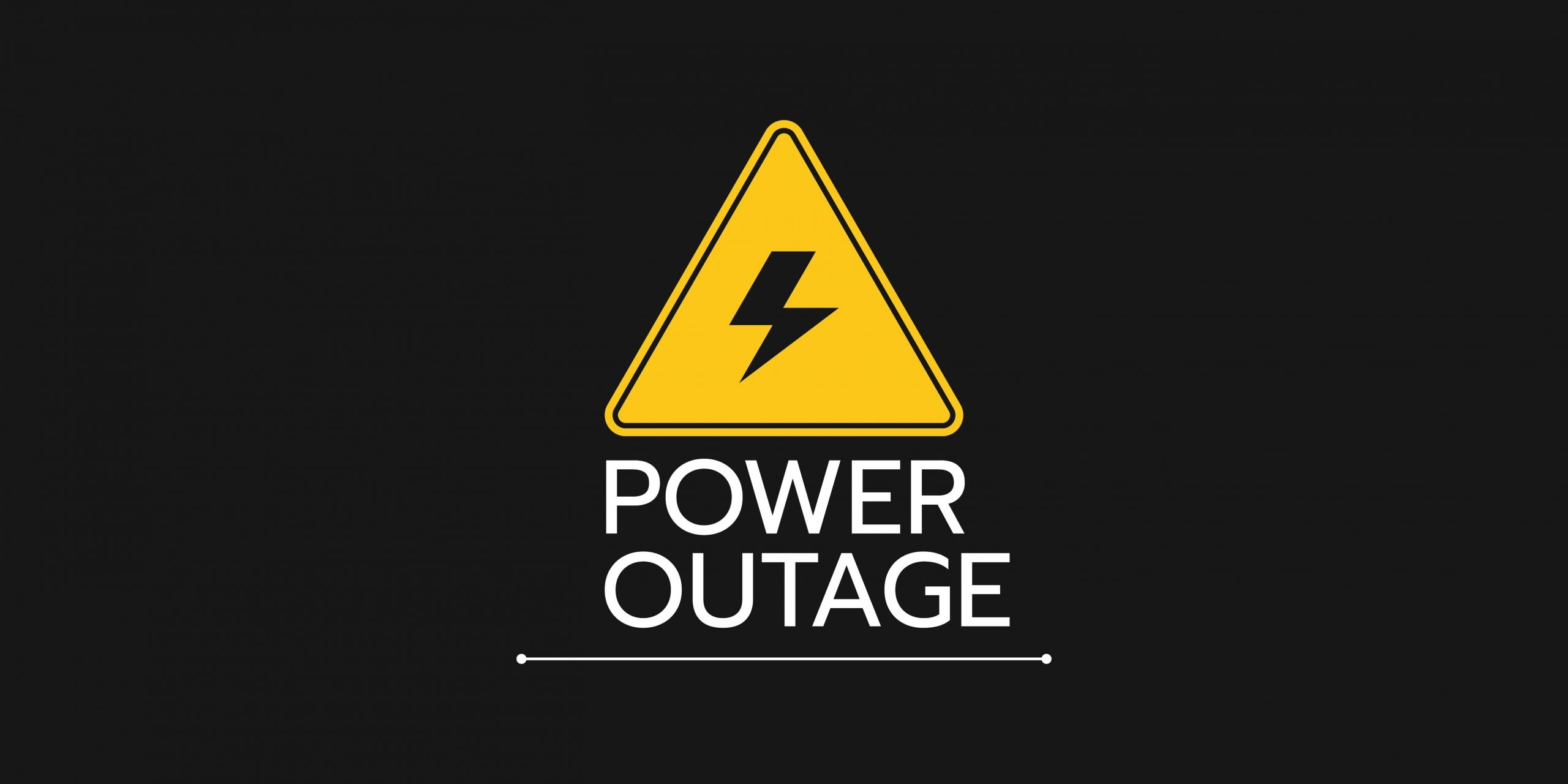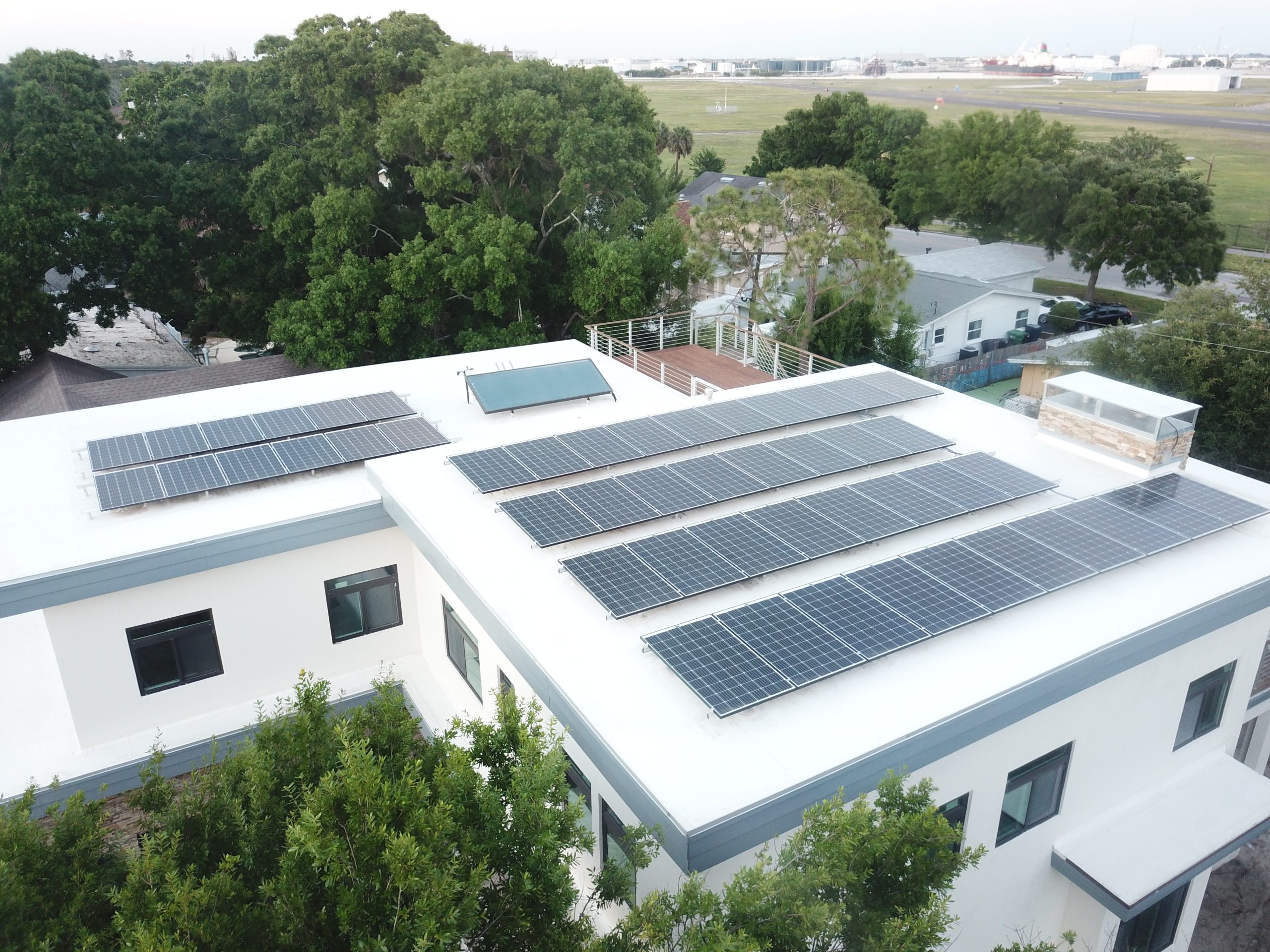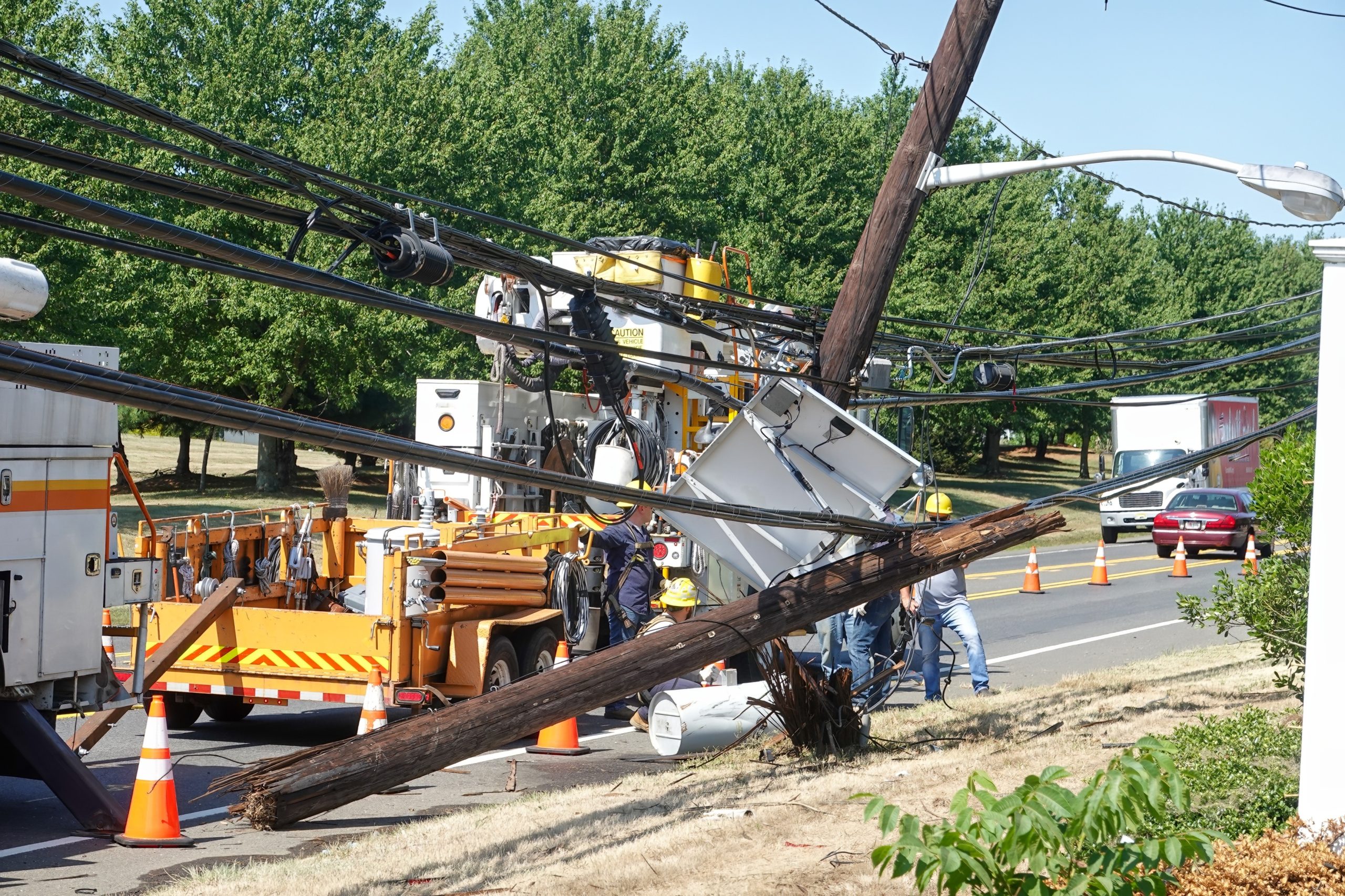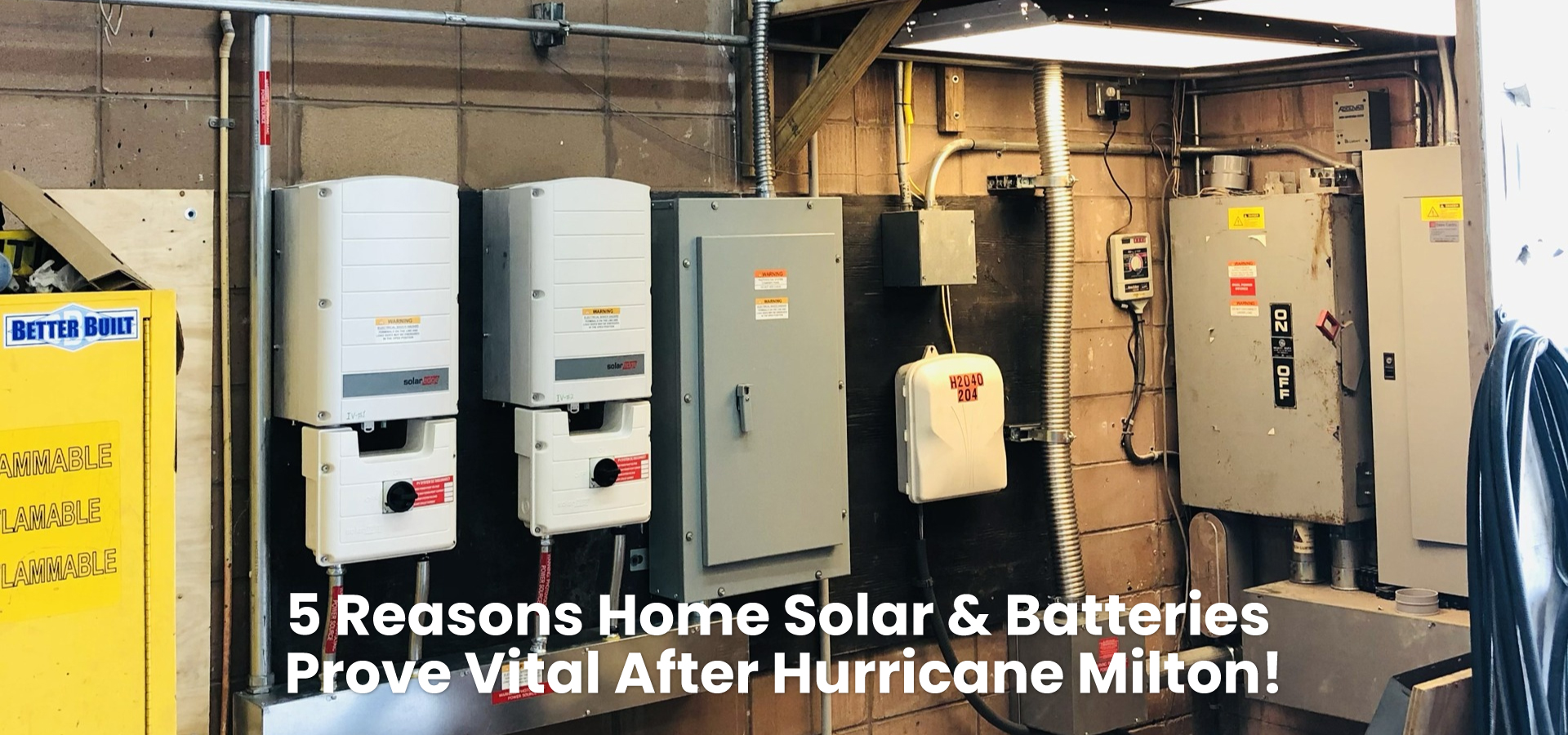From grid-tied suburban systems to 100% off-grid applications in rural areas, Tampa Bay Solar has installed every variety of power back-up solution since 2010.
But what back-up power solutions should you consider, and how much do they cost?
Here are three common options ranging from least to most expensive:
Least Expensive: Grid-Tied with SMA Inverter ($)
If your roof has full sun exposure and you’re looking for a faster ROI on your solar panel array, you can’t go wrong with the Secure Power Supply feature included with the SMA inverter.
The biggest benefit of this system is that it gives homeowners access to power in the daytime if the grid is down.However, the SMA inverter does not store power, so when the sun goes down, the power stops. Depending upon the size of the rooftop array, the SMA Secure Power Supply can recharge your phone, run some appliances, or spare food in your refrigerator, but you may need an alternative source if you need power at night.
At Tampa Bay Solar, we’ve installed hundreds of these systems, and they pay off particularly well during storm-related outages: When Hurricane Irma caused widespread power outages in 2017, for example, many Tampa Bay Solar clients kept their lights on thanks to this extra feature.
More Expensive: Grid-Tied With a Battery Back-p ($$)
A battery back-up system uses a battery that is sized to meet the specific emergency energy needs of your home. While the size and price can vary widely depending upon how much power you need, these systems are designed to turn on moments after a blackout, then resume normal operation once the grid is restored.
Need to run all the breakers in your house, including the air conditioning? You’ll likely need a larger battery. Only need to keep your lights and some kitchen appliances operating? A smaller battery back-up system may work best for you.
Either way, these systems recharge every morning as the sun comes up, so it’s possible to maintain your comfort and peace of mind with this system despite weeks-long power grid outages. Additionally, these systems can be used to run on-site wells in rural areas, protecting your water supply in case of a long-term blackout.
Most expensive: 100% off-grid solar systems. ($$$)
The founder of Tampa Bay Solar, Steve Rutherford, lives in a two-story Tampa home that is 100% off grid with no connection to TECO. Steve accomplished this by building a home that is highly efficient from the ground up: From a high SEER-rated HVAC to thick, highly insulated walls to solar hot water heating and electricity, the home operates independently of the grid.
Off-grid systems like Steve’s have to be very carefully engineered to avoid blackouts during the hot summer months. They also require a larger battery bank and more panels on the roof, especially with the summer air conditioning requirements here in Florida.
While the worst-case scenario with an off-grid system is running out of battery power in the middle of the night, homeowners that choose this option can rest assured—when the sun rises in the morning, the system will return to operational status.
Future Alternative for Back-up Power: Electric Vehicles
Several electric vehicle companies are developing technology that will use an electric vehicle as the battery back-up for your home.
The idea is that this technology will use the energy stored in your vehicle to power your home during a blackout; the obvious challenge, however, is if you need to use your electric vehicle during the day.
As solid-state battery technology becomes widespread for electric vehicle manufacturers, this option might make more sense—especially if the homeowner has two electric vehicles in the driveway: One that could be used as a power back-up, and the other for transportation.
The current lithium-ion battery technology used in electric vehicles will be replaced with lighter, solid-state battery technology by 2025. These next-generation batteries will have a much longer range, weigh less, and charge much faster than current technology—and will be a viable option for power back-up.
Who Should You Choose to Install Power Back-up on Your Home?
Tampa Bay Solar has deep expertise and experience in installing power back-up systems for Florida homeowners.
While there are many solar installers across the Tampa Bay Area, Tampa Bay Solar is one of the few companies with 1,000+ panel installs under its belt—not to mention experience installing solar panels on every type of roof surface found on residential and commercial buildings!
If you are curious about the options for your home or commercial facility, request a free audit from Tampa Bay Solar—the team takes an educational approach with clients, and will partner with you to find the right solar panel and back-up power system to suit your needs.




